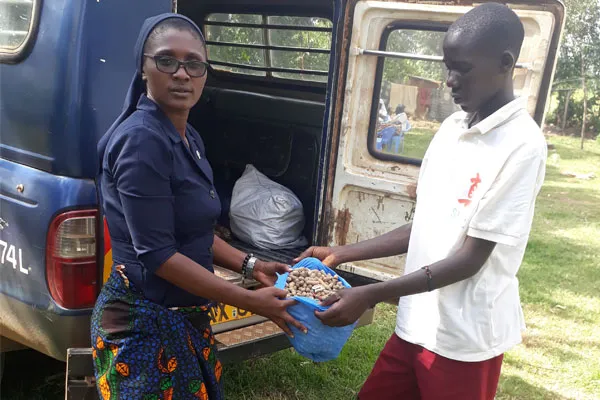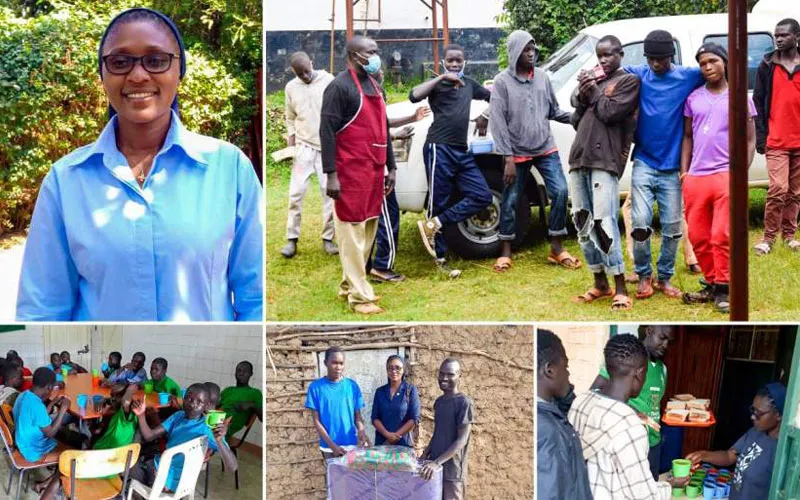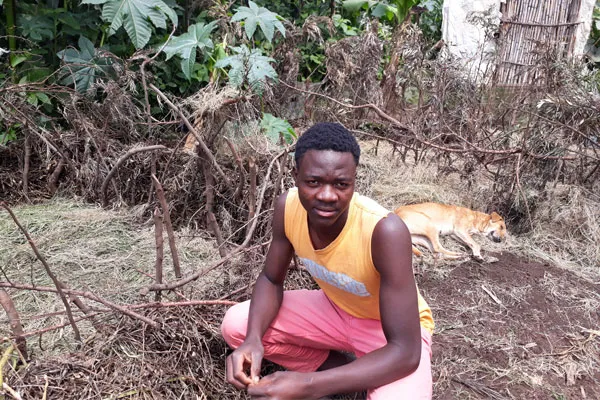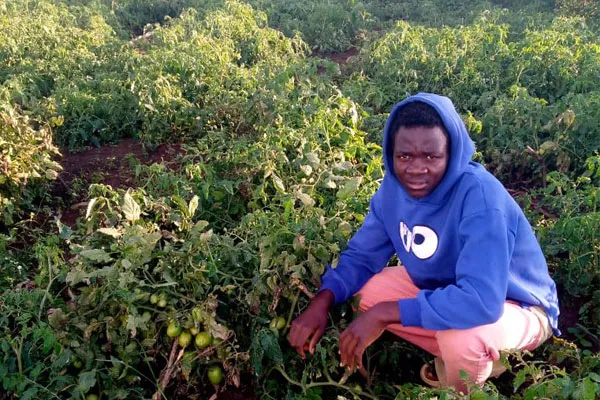When Jeremiah first met the USC field workers who rescued him and guided him to join the Centre, he was a very bitter boy owing to the life he had led at home, which drove him to the streets.
“Among his friends, he was always quiet and visibly bitter. He was engaged through counselling where he opened up a little bit about his past,” Sr. Winnie shared with ACI Africa on Friday, December 18, adding that the boy’s engagement in the daily activities at the Centre brought out his intelligence.
Gradually Jeremiah was counselled and accepted to go back home.
The case of Jeremiah is one among many other success stories at USC, a project that won Sr. Winnie Presidential recognition among people who were working tirelessly to alleviate suffering during the COVID-19 pandemic.
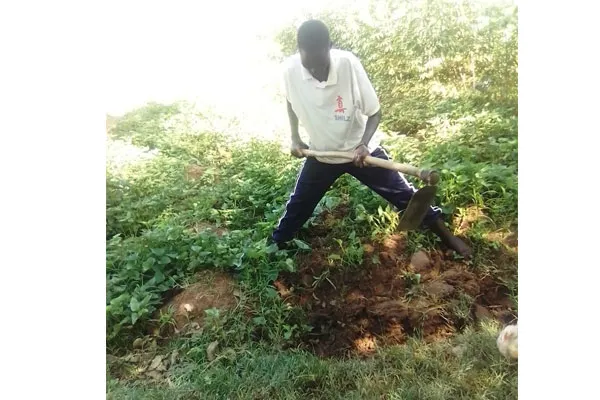
(Story continues below)
The countrywide lockdown, which forced the Centre to close temporarily did not stop the Kenyan Sister from reaching out to the street children who were on their own.
She proceeded with phase two of the project, which involved home tracing and re-integration of the street boys into their families. Instead of children coming for help, she braced harsh climatic conditions and took food, face masks, and soap to the children in designated meeting points.
It was also during lockdown that the alumna of Tangaza University College’s Institute of Social Communication reunited most boys with the families in a crush program that was aimed to shield the children from the suffering that had escalated on the streets.
Families were more receptive to their children during lockdown, making the re-unions easier for USC.
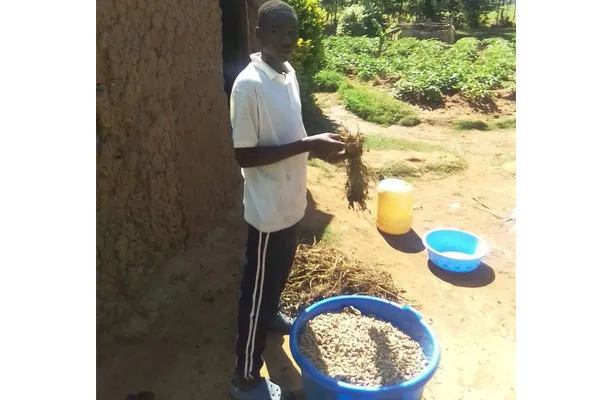
And the moment the country was reopened up in July, USC swung back into action, recruiting more boys at the Centre. Other processes of rehabilitation, home tracing re-integration and empowerment also resumed.
The Centre embarked on developing safety structures that allowed small groups of street children to access services.
“We didn’t waste a minute in reporting back to the Centre. The children had endured a lot of suffering on the streets and they needed a good shower, a place to wash their clothes and to have a decent meal peacefully,” Sr. Winnie says.
She adds, “We had already lost two boys. One took his own life when he felt overwhelmed on the streets and the other drowned in a river where he had gone to take a shower.”
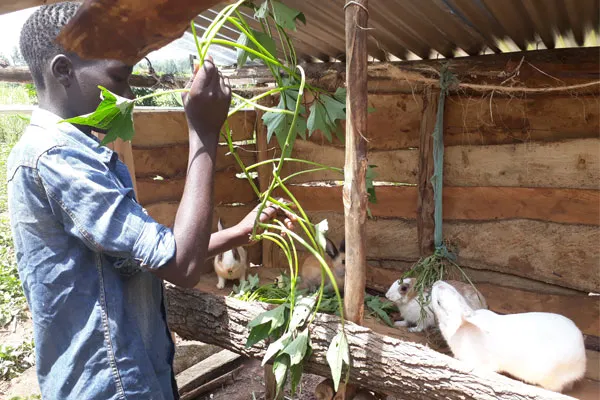
Since July, seven boys have gone through reintegration successfully, bringing the total number of those who have gone through the process to 46. Three of these have unfortunately gone back to the streets.
USC has identified schools that the rest will be joining in 2021, should children be allowed back to class. Before COVID-19 struck, three boys in Form Three, Class Eight and Class Three had already been enrolled back to school.
Many others like Jeremiah and 17-year-old Edwin Muricho are being trained on skills in farming and business.
Edwin comes from a broken family with parents who separated and remarried. While he stayed with his step-father, Edwin dropped out of school in Class Eight. His mother enrolled him at a technical college and after a short stint there, he dropped out and opted for street life.
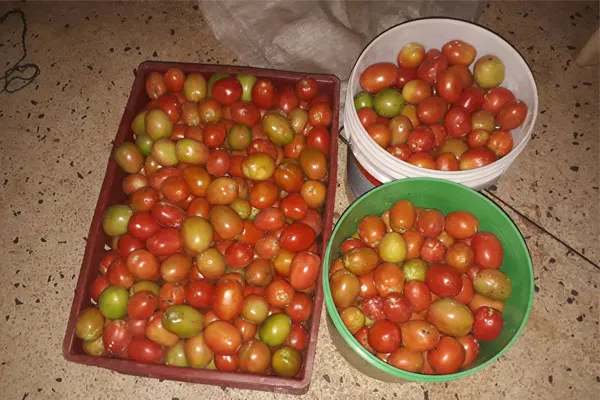
Before he was rescued by the Upendo project, Edwin had gone around different towns including Nairobi and Mombasa and was hoping to cross the border to nearby Tanzania.
He was arrested a number of times with petty crimes and found himself on the streets in Kitale where the Catholic Sisters’ Centre rescued him.
“Through his participation in counselling and activities for rehabilitation program, he agreed to show us where the mother was. Home tracing was done but he was not ready at first, citing the fear of the step-father,” Sr. Winnie narrates, adding that a neighbor was roped in to help in the reintegration process.
Through home visits and follow-ups as well as phone calls to guardians, his relationship improved and he accepted Edwin back home.

To empower Edwin, USC started a tomato farming project for him and got him the seedlings and chemicals to start off the venture. When Sr. Winnie spoke to ACI Africa, the former street boy had started harvesting the tomatoes.
He is now working with other boys at the Centre who buy small quantities of the tomatoes from him and sell them at a profit.
Edwin also sells the tomatoes to small-scale traders; and in a gesture of giving back to society, he also shares the tomatoes with USC, where they are used in the food preparation for other boys.
Additionally, the USC Project has secured Edwin’s admission for Carpentry training in collaboration with the Congregation of the Mission brothers who run a Carpentry Training institute in Nairobi where the boy is set to commence his studies.
Agnes Aineah is a Kenyan journalist with a background in digital and newspaper reporting. She holds a Master of Arts in Digital Journalism from the Aga Khan University, Graduate School of Media and Communications and a Bachelor's Degree in Linguistics, Media and Communications from Kenya's Moi University. Agnes currently serves as a journalist for ACI Africa.
